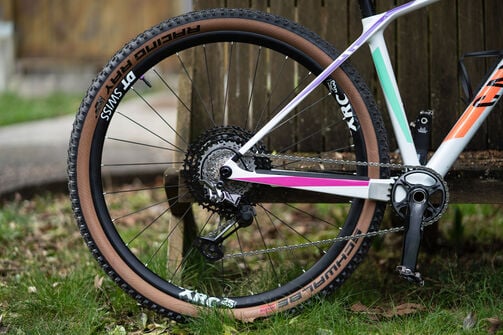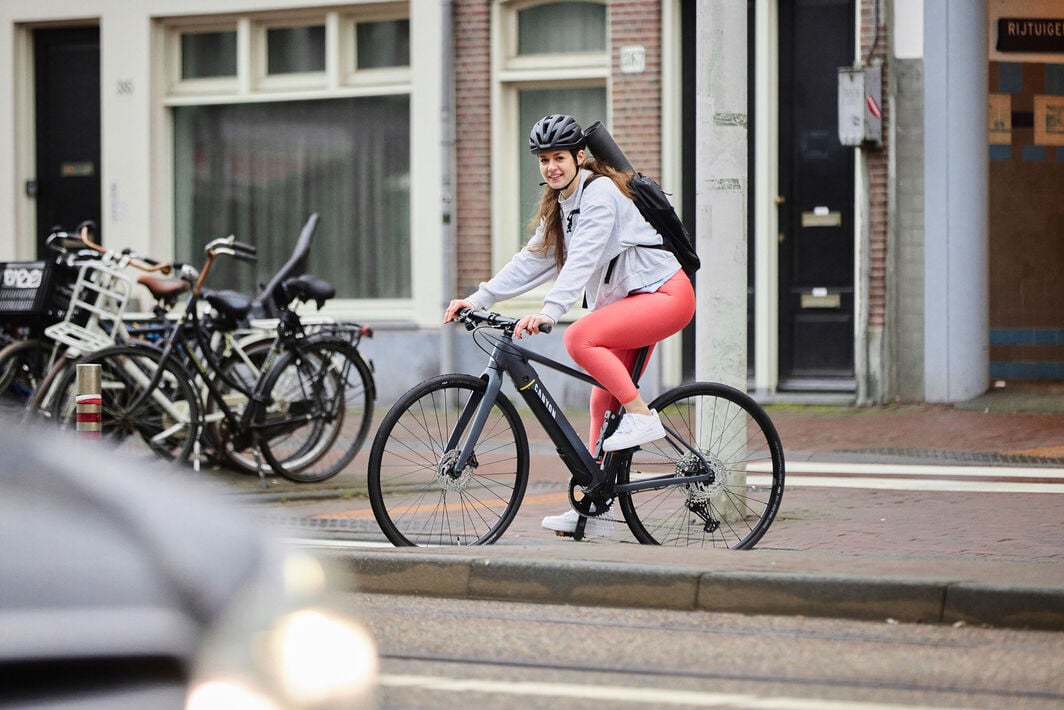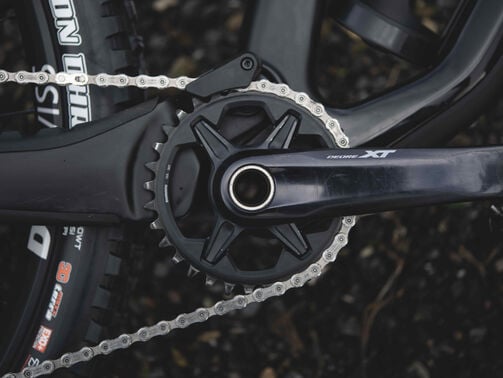Finding the right tyre size for your bike with the ETRTO Table
Bicycle tyre sizes: What is the right tyre size for my Bike?


Contents
Whether you ride a road bike, MTB, urban or gravel bike – there are a lot of different tyre sizes. We’ll tell you everything you need to know about bicycle tyre sizes and how to choose the right one for your bike.
How do I find the right size tyre for my bike, and what do the numbers on the sidewall of the tyre mean?
There is an incredible number of tyre sizes available today. And just a few years ago, the size designations were all over the place. Thanks to the introduction of the ETRTO Table (European Tyre and Rim Technical Organization), it is now much easier to find the right tyres for your bike.
In addition to its general size in inches, each tyre has a specific ETRTO number, which always follows the same structure. For instance, an ETRTO size of 37-622 means that the tyre is 37 mm wide and has an inner diameter of 622 mm. This makes it easy to find a tyre that is a perfect fit for your rims.
In addition to the ETRTO size, tyres also have a traditional size in inches. For instance, a tyre labelled 26 x 1.40 has a nominal outer diameter of 26 inches and a width of 1.40 inches. Some tyres also feature sizes in fractional inches, such as 26 x 1⅜ x 1¼. These values represent the outer diameter, tyre height, and tyre width, respectively.
How does the width of the rim affect the actual width of the tyre?
The ETRTO tyre sizes shown on the sidewall refer to the size of the tyre when mounted on a wide rim. How wide a tyre will actually be once you mount it depends on the width of your rims. Narrow rims pull the tyre in closer, resulting in a narrower overall width.
Manufacturing tolerances also cause some variation in the width of any given tyre. These factors can mean that a tyre’s actual width does not match the nominal width exactly. Bicycle tyres with integrated puncture protection tend to be slightly narrower.

Special tyre sizes for certain types of bikes?
There are so many different bikes to choose from: From urban and touring bikes to road and triathlon bikes and on to gravel and mountain bikes. This raises the question whether every type of bike needs a special size of tyre.
Ultimately, it all boils down to the rims, since the tyres have to fit them. The ETRTO sizing information on the tyre makes that easy to verify: The second number after the dash always represents the rim diameter. But beware: On traditional English tyre sizes, the first number represents rim size. If you’re uncertain, check the sizing information on your old tyres.
If your mountain bike has 29-inch wheels, make sure to get a tyre with the right inner diameter to fit those rims. By contrast, you have several options when it comes to tyre width. Most bikes will accommodate a certain range of different tyre widths. Changing the width of your tyres can be a great way to fine-tune the way your bike rides and handles. But make sure your new tyres aren’t too wide, or they won’t fit through the frame properly.
What tyre size do I need for my mountain bike?
Mountain bikes are available with anything from a 20 inch (for children) all the way up to a 29 inch tyre. Across this range of tyre diameters, there is a broad selection of tyre widths as well. By far the widest tyres (27.5 x 2.8 to 27.5 x 3.2 or ETRTO 67-584 to 79-584) are for so-called fat bikes.
For normal MTB tyres, the sizes range from 20 x 1.9 - 20 x 2.25 (ETRTO 47-406 to 57-406) up to 29 x 1.9 - 29 x 2.4 (ETRTO 47-622 to 63-622).
What tyre size do I need for my road, triathlon, or gravel bike?
Your road or triathlon bike runs tyres ranging from 28 x ¾ to 28 x 1⅛ (ETRTO 18-622 to 28-622). A gravel bike needs tyres between 28 x 1 and 28 x 1.6 (ETRTO 28-622 to 42-622).
What tyre size do I need for my touring or urban bike?
Tyres for touring and urban bikes can be as little as 12 x 1.75 - 2.25 inches (ETRTO 47-203 to 62-203) and as big as 29 x 1.9 - 2.4 (ETRTO 47-622 to 63-622).

What tyre size do I need for my e-bike?
Tyre sizes for e-bikes are essentially the same as for any other bike. However, there are some more robust tyres intended specifically for e-bikes. There are two reasons for this: E-bikes are heavier than conventional bikes, and the tyres need to withstand greater forces. That means it makes sense to opt for a slightly more expensive but also more robust tyre.
Did this article help?
Thank you for your feedback




